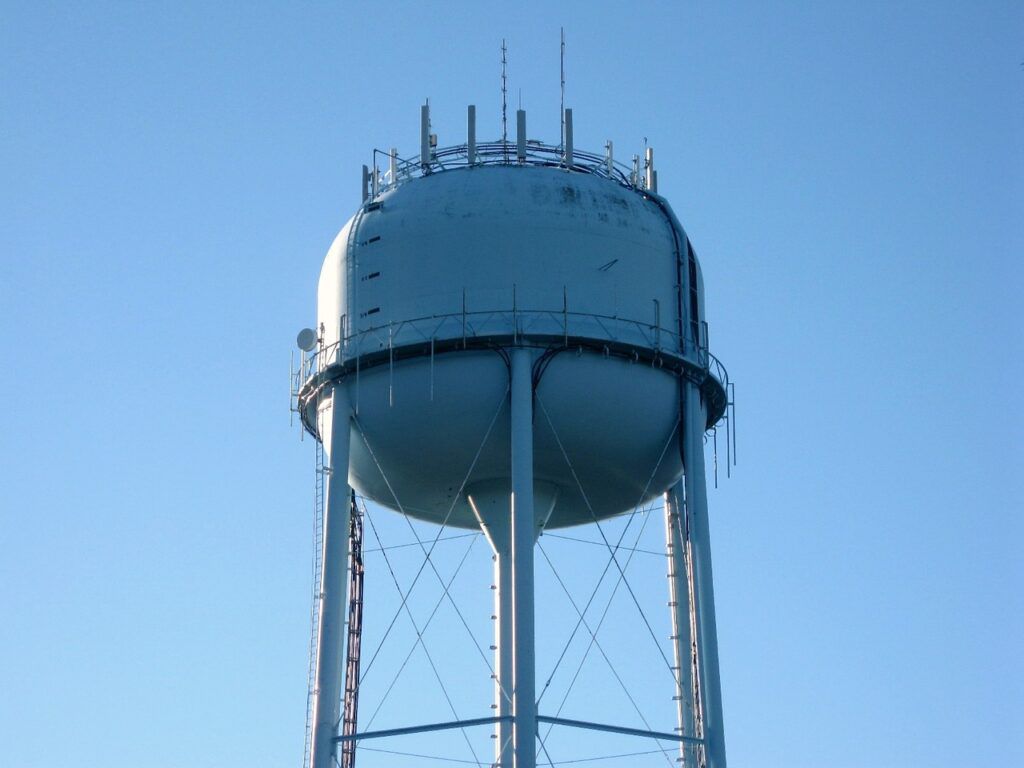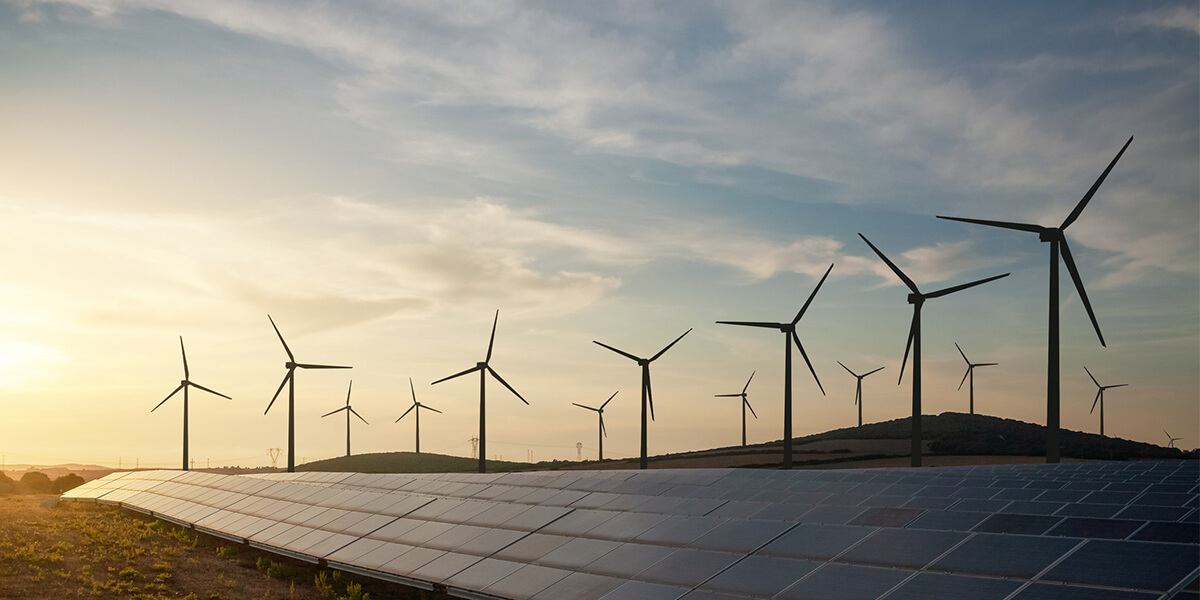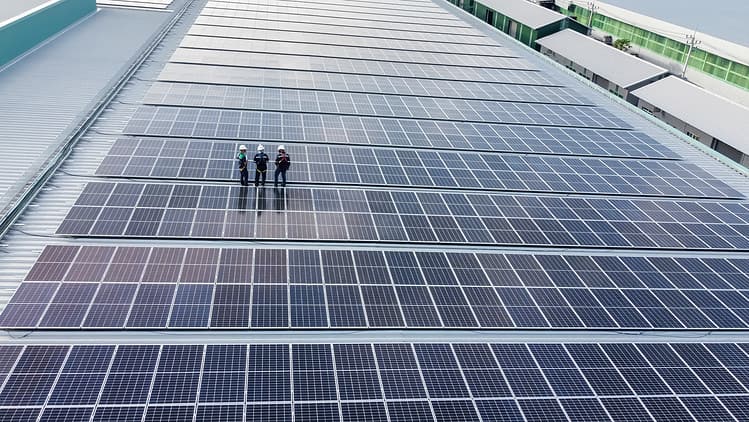
Evoqua Water Technologies provides water and wastewater treatment solutions to industrial, municipal, and recreational customers. The Pittsburgh-based company offers products and services for energy generation, food and beverage companies, healthcare, and manufacturing enterprises. It has 4,000 employees and operates in 156 locations in 10 countries. Its sustainability focus includes mitigating climate and water risks.
“Sustainability is core to what we do every day — providing solutions to protect and preserve on our planet’s most valuable resource: water,” says Ron C. Keating, chief executive officer.
The goal is to operate sustainably — to help customers mitigate climate and water risks by delivering resilient technologies that provide safe water. As part of this effort, the company plans to recycle and reuse more water than it withdraws at its facilities by 2035. It is committed to the circular economy using such technologies as UV infection systems.
In 2021, the total company-wide water reuse exceeded 55% — the equivalent of the estimated average annual water use of over 2,800 homes.
It also aims to hit net zero by 2050. It will set Science Based Target initiatives next year or those in line with keeping temperature increases to no more than 1.5 degrees Celsius by mid-century compared to pre-industrial levels. That applies to Scope 1, 2, and 3 emissions — or those that apply to its operations, the fuels it buys, and the carbon footprint of its suppliers. For example, water treatment is energy-intensive, but Evoqua’s solutions capture energy from waste to power 5,000 homes daily with clean electricity.
Furthermore, the company reduced electricity usage by 7% between 2019 and 2021.
What are you doing to cut your emissions from operations?
In 2021, it completed a holistic review of the company’s environmental footprint — everything from greenhouse gas emissions to water usage to water generation. It also deploys best practices in each of those areas. It examines installing LEDs, reusing materials, performing energy audits, upgrading HVAC systems, and utilizing local/state/federal incentives.
For the next 18 months, it will focus on reviewing its Scope 1 and 2 emissions tied to its operations and the fuels it buys. It will also evaluate its Scope 3 emissions linked to its supply chain. As of September 30, 2021, renewable technologies account for roughly 16% of the electricity it buys from the electric grid, which falls under Scope 2. Those emissions make up 25% of its emissions. Thus, its goal is to buy more renewables.
It says its Scope 1 emissions linked to its operations are attributed to its vehicle fleet and the natural gas it uses for the heat process. Indeed, Evoqua’s fleet is fueled by diesel and gasoline, accounting for 37% of its 2021 emissions. The goal is to switch to hybrid vehicles.
Evoqua plans to use the Science Based Targets initiative’s (SBTi) methodology to assist the company in setting its reduction targets by 2023 — now used by more than 2,000 businesses worldwide. The company is incorporating environmental and safety metrics into its employee annual compensation program beginning this fiscal year to get there.
“Every day, we work hard to ensure that our customers’ water systems are operating sustainably, helping them to mitigate climate and water risks by delivering connected, resilient technologies that provide healthy and safe water resources,” said Ron Keating, Evoqua’s Chief Executive Officer. “As we continue our sustainability journey, we are committed to looking inward and taking action to further protect our communities and planet by reducing our operational footprint. Today’s announcement is an important step to delivering growth responsibly and sustainably.”
What is the company doing to address climate and water risks?
It is removing metals from water solutions, averaging 17% year-over-year since 2019. It realized a 22% increase in metal removal in 2020 and 2021. For example, its Roseville, Minnesota, location removes dissolved heavy metals from various rinse water and wastewater streams so that they can recycle them, avoiding landfills. “Removing these heavy metals makes the water safe for our customer processes.”
— It regenerated 96,842 tons of resin for reuse in 2021, avoiding the purchase of virgin resin and associated disposal.
— It prevented 12,924 tons of reactivated carbon from entering landfills.
Evoqua also opened a Sustainability and Innovation Hub in 2021. The new facility advances and develops cutting-edge and sustainable water treatment technologies to address climate and water risks.
“While we withdraw approximately 1.5 million gallons of water daily within our facilities, we also transform approximately 100 billion gallons for our customers daily. By transforming approximately 100 billion gallons of water a day for various end markets, we have the opportunity to help our customers build more environmentally and socially responsible water systems,” says Snehal Desai, executive vice president and sustainability officer at Evoqua.
The company had previously been known as Siemens Water Technologies LLC. It became Evoqua Water Technologies LLC in 2013.




